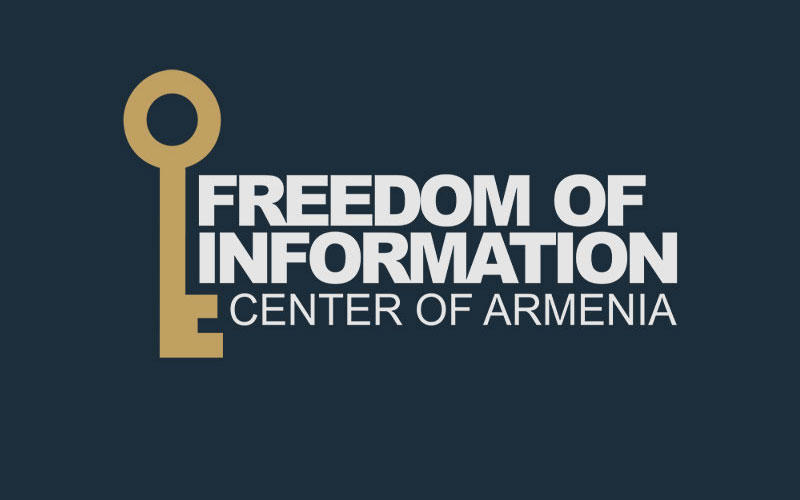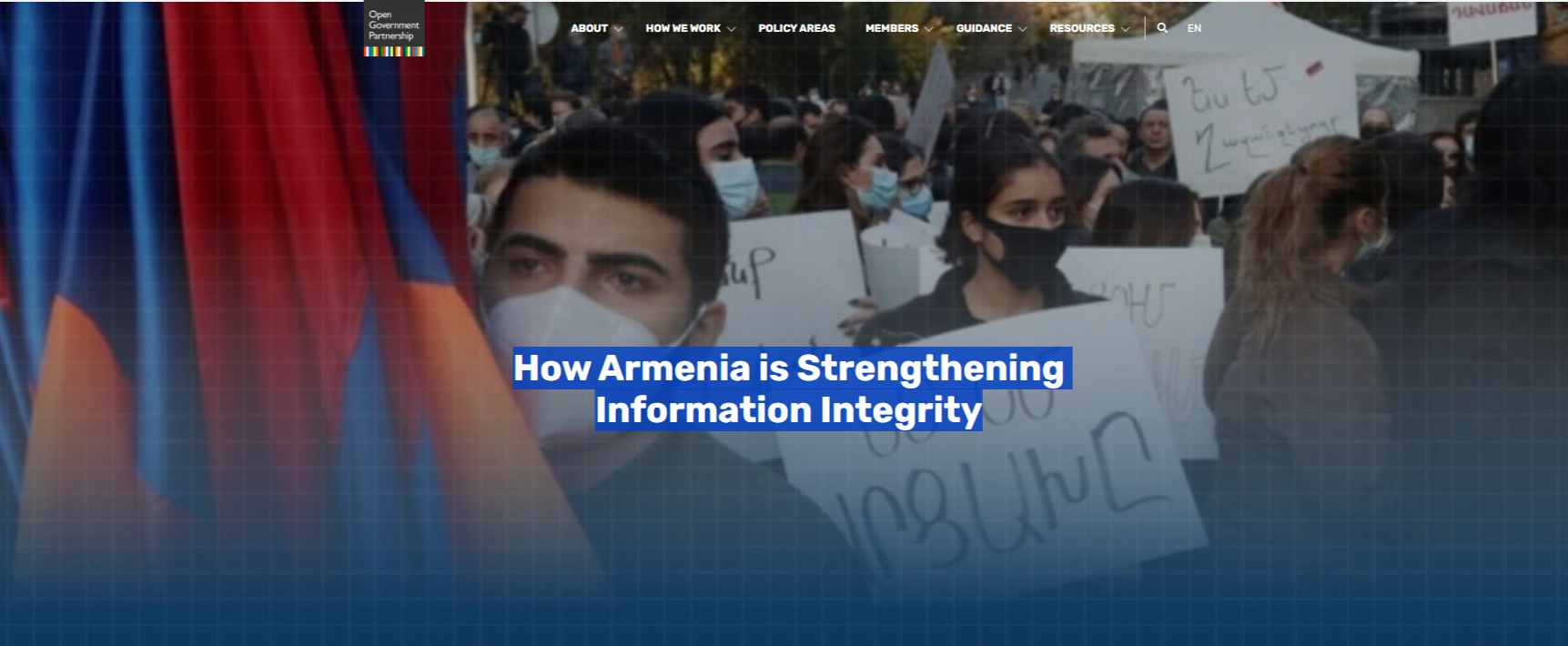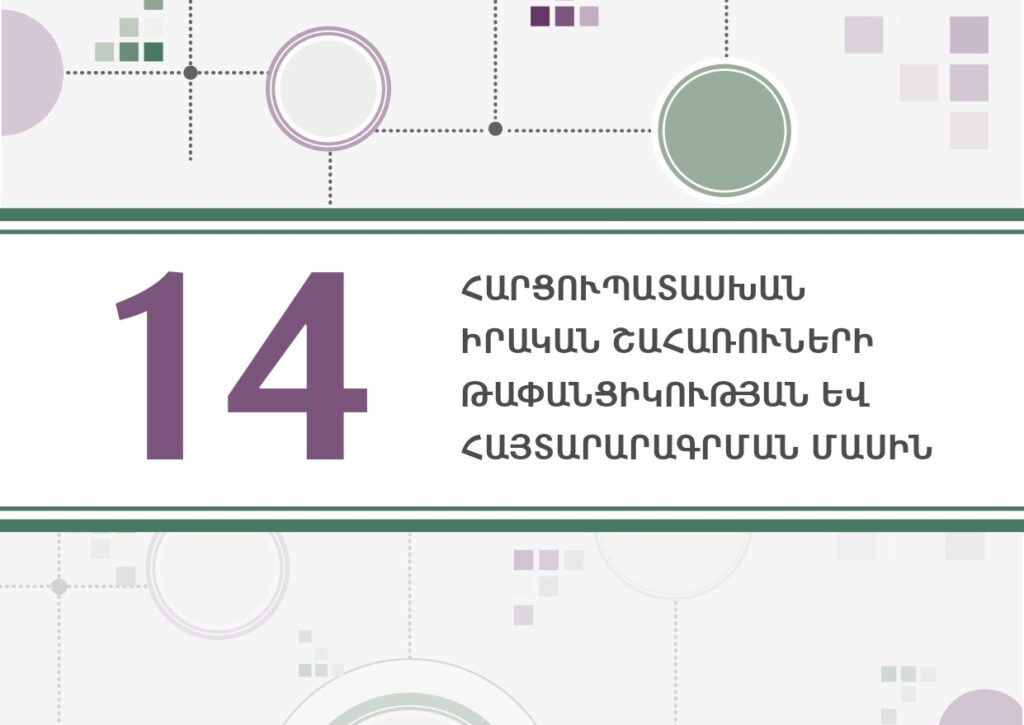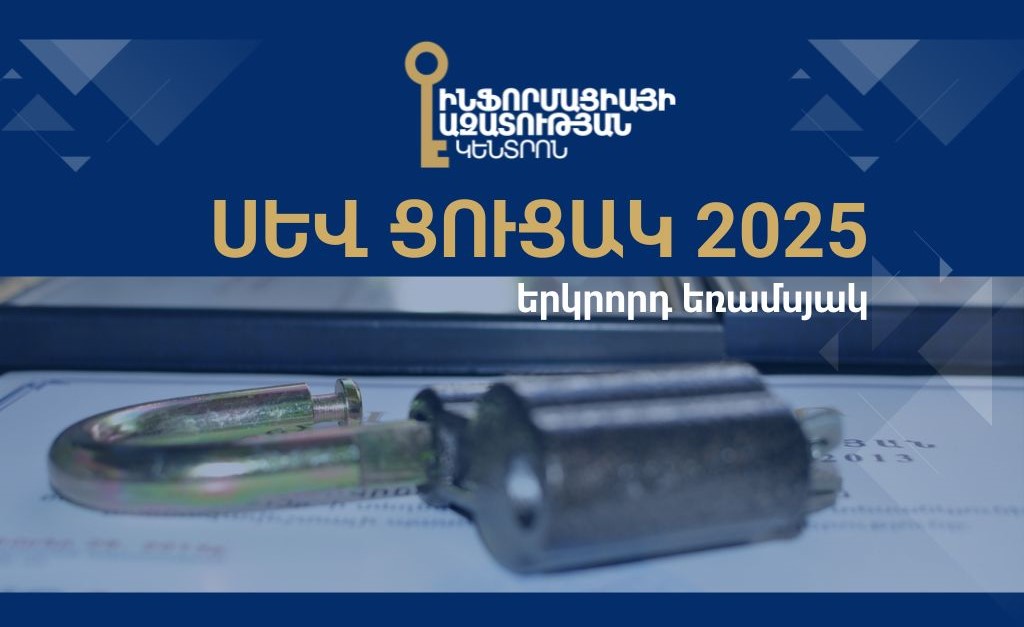Arthur Hovhannisyan Bulletin #14 In the Republic of Armenia information freedom or right really exists… However for socially vulnerable layers of the society, that is to say for the majority of population information freedom is actually restricted. This means that information freedom in our country bears formal nature. What do we mean by saying this?… When on November 15, 2003 the RA law on “Information freedom” was adopted, it seemed that in Armenia there would not be any problems with information accessibility at least in legal sense. However, after 7-8 months from the law’s adoption we had chances to assure tha the executive and legislative branches do not intend to give in easily and ensure accessibility of information. To put it more exactly, the National Assembly of Armenia has not made any changes in the 4th article of the law on “State registration of juridical persons”. According to this law state due is charged for making use of the “universal state information register” as fixed by the state due law. RA government in its turn has not made appropriate changes in the 4th point of the procedure approved by the decision #674 of July 25th “concerning juridical person’s use of the universal registry and other information as fixed in the 4th point. According to the 4th point which says that “Any interested party can receive information from the state universal registry or by email paying a state due as fixed by the law. Currently the state due is 1000AMD which is not a small sum for the poor who may give up the idea of receiving the information needed. Besides, there are no guarantees that in the future the state due for receiving information will not be increased. Thus, it is obvious that the abovementioned 4th point of the procedure needs to be changed due to the fact that it contradicts to the adoption and requirements of RA law on Freedom of Information. What is the contradiction? According to the 10th article of RA law on Freedom of Information no charge is made for information (or its copy) provided by state and local authorities, state structures and organizations also in the following cases: • For up to 10 pages of printed or copied information, • For information via e-mail (internet). In the Republic of Armenia the central state register body is the state register agency of the RA Ministry of Justice, as well as its regional branches. Meanwhile, the RA law on the “State registration of juridical persons” does not provide the abovementioned exceptions fixed by the law on Freedom of Information. It should be taken into account that the unified register of juridical persons contains information on all the juridical persons of the Republic of Armenia (except banks and stock exchanges) as well as private enterpreneurs and organizations. The content of the information (founders, shareholders, members, colleagues) in the unified register is fixed by the RA law on the “ state registration of juridical persons.” But… The RA law on Freedom of Information was adopted in 2003, but in spite of this juridical and physical persons (including journalists) still cannot receive information without paying the state due, no matter the information is more or less than 10 pages or is sent via e-mail or not. Thus there are legislative contradictions which need to be solved as soon as possible. It should also be taken into account that the law on Freedom of Information was adopted two years after the adoption of the law on the state registration of juridical persons. Thus it is obvious that the law on Freedom of Information is newer and that the government had to be guided by the law on Freedom of Information. There can be an argument that the government could not make changes in the procedure of information provision because no changes were made in the 4th article of the RA law on the “state registration of juridical persons”. But in that case the government had to take the initiative of making changes in the law. The fact is that up to now the mentioned legislative contradiction is still in effect despite the EU Ministers’ Council assignment on the “Access to the Official Documents”.











